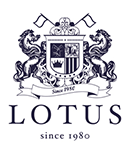Eco-Friendly Modern Cloth Diapers Produced Sustainably for Babies and the Environment
The Rise of Washable Diaper Factories Revolutionizing Infant Care and Sustainability
In recent years, there's been a notable shift in consumer preferences regarding infant care products, particularly diapers. Traditional disposable diapers, while convenient, have raised concerns about their environmental impact and long-term sustainability. This has sparked the growth of washable diaper factories, which offer eco-friendly alternatives that are not only gentle on the planet but also beneficial for the baby’s skin.
Washable diapers, often made from natural fibers like cotton, bamboo, or hemp, provide a sustainable solution to the diaper dilemma. Unlike their disposable counterparts, which can take hundreds of years to decompose, washable diapers can be reused countless times. This fundamental difference has made them a focal point in discussions about reducing waste, particularly given that an average baby goes through around 6,000 diapers before potty training.
The Rise of Washable Diaper Factories Revolutionizing Infant Care and Sustainability
Moreover, washable diaper factories are addressing a crucial aspect of infant care skin health. Many disposable diapers contain chemicals and fragrances that may irritate sensitive skin. In contrast, washable diapers are typically free from these harmful substances, providing a safer option for infants prone to rashes or allergies. The soft, breathable materials used in washable diapers ensure comfort and reduce the likelihood of skin irritations, making them a preferred choice for many parents.
washable diaper factory

From a financial standpoint, while the initial investment in washable diapers may seem high, they prove to be cost-effective over time. Parents can save a significant amount of money by avoiding endless purchases of disposable diapers. Additionally, many washable diaper factories offer rental programs or second-hand sales, making it easier for families to access these products without a substantial upfront cost. This accessibility is crucial, especially for families on tighter budgets seeking sustainable solutions.
The impact of washable diapers extends beyond individual families. The surge in demand for these eco-friendly products has led to the growth of local economies as these factories often employ local workers and support small-scale businesses. Furthermore, by promoting environmentally responsible practices, these factories encourage a shift in consumer behavior toward sustainability, inspiring other industries to reconsider their approaches to production and waste management.
As awareness grows about the benefits of washable diapers, more parents are making the switch from disposable options. The result is a burgeoning market for washable diaper factories, which are quickly expanding to meet the rising demand. These factories are not only transforming the way parents care for their infants but are also playing a crucial role in our collective effort to protect the environment for future generations.
In conclusion, washable diaper factories are at the forefront of a significant change in child-rearing practices, merging practicality with responsibility. By promoting sustainable materials, prioritizing infant health, and fostering economic growth, these factories are setting new standards in both the diaper industry and environmental stewardship. As they continue to gain traction, they pave the way for a cleaner, greener future where caring for our children aligns harmoniously with caring for our planet.
-
Fire Retardant Blanket for Safe Air TravelNewsJun.20,2025
-
Enhance Your Air Travel with Essential AccessoriesNewsJun.20,2025
-
Elevate Your Air Travel with Comfortable and Stylish AccessoriesNewsJun.20,2025
-
Comfort Textiles for Home and TravelNewsJun.20,2025
-
Best Blankets for Flying ComfortNewsJun.20,2025
-
Unraveling the Appeal of Airline Travel BlanketsNewsMay.23,2025
- Product Categories
- • Hospital Used Fire Retardant Bedding
- • Hotel Textiles
- • Airline Textiles
- • Hometextiles
- • Infant Cloth
- Quick Links
- • Home
- • Products
- • About us
- • News
- • Contact
- Contact Us
-
Tel: +8631187701449
-
Fax: +86 311 8770 1444
-
E-mail: sale@hometex-suntex.com




